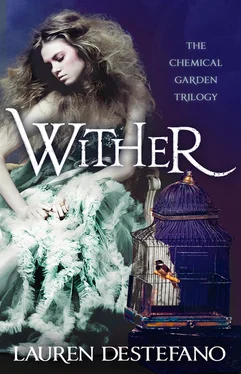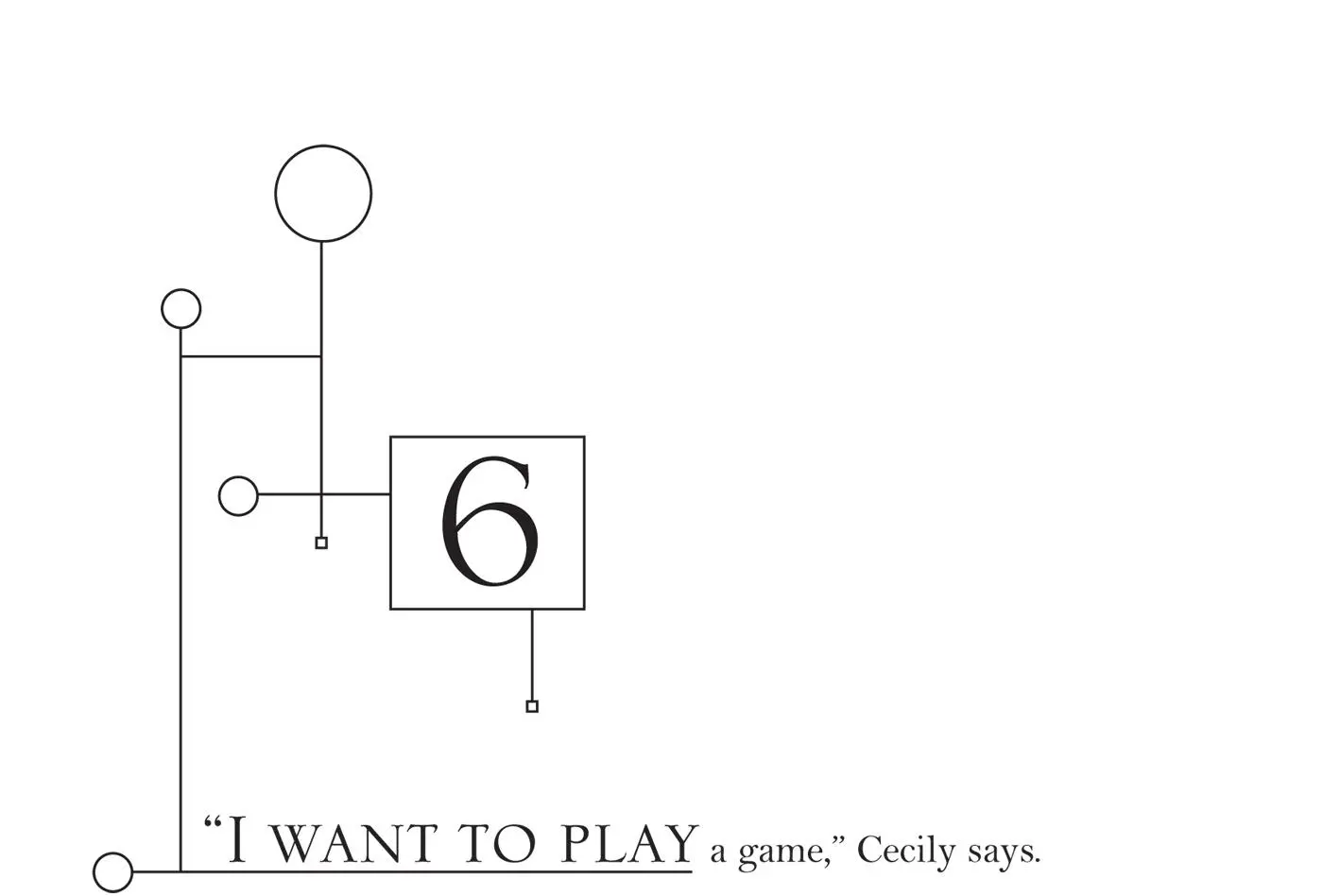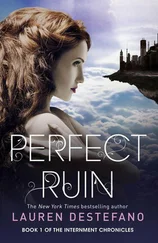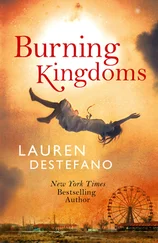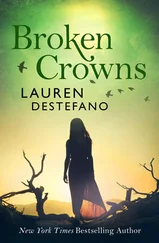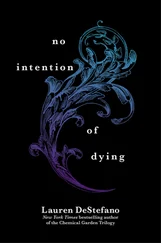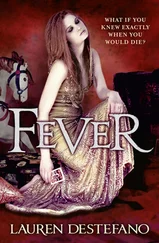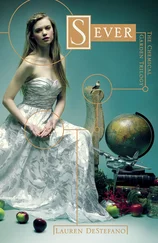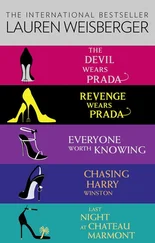I sit on the window ledge, press my hand against the screen. It looks like a perfectly ordinary screen, one that would pop out of its frame if pushed hard enough. I could jump, although it’s several stories up—higher than the roof of my own house, at least—but there are no trees to reach for. It isn’t worth the attempt. But still, I think of what Rose said when she found me at the elevator. She said she wouldn’t tell on me because she understood.
“Rose?” I say. “Did you ever try to escape?”
“It doesn’t matter,” she says.
I think of the little girl in the photo, smiling, so full of life. She’s been here all these years. Was she bred to be Linden’s bride? Or was she once resistant to it? I open my mouth to ask, but she’s sitting up in the bed now, and she says, “You’ll see the world again. I can tell. He’s going to fall in love with you. And if you’d just listen to me, you’d realize you’re going to be his favorite once I’m dead.” She mentions her death so casually. “He’ll take you anywhere you want to go.”
“Not anywhere,” I say. “Not home.”
She smiles, pats the mattress beside her in invitation. I sit beside her, and she gets up to kneel behind me, and begins weaving my hair into a braid. “This is your home now,” she says. “The more you resist”—she tugs my hair for emphasis—“the tighter the trap gets. There.” She takes a ribbon that was draped over her headboard and ties my hair in place. She crawls across the mattress so that she’s facing me, and she strokes a wisp of hair away from my eyes. “You look nice with your hair back. You have great cheekbones.”
High cheekbones, just like hers. I can’t ignore our resemblance to each other: the thick, wavy blond hair, the pert chin, soft nose. All that’s missing in her are the heterochromatic eyes. But there’s one other difference between us, and it’s significant. She was able to accept this life, to love our husband. And if I have to die trying, I will get out of here.
There’s no more talk of escape between Rose and me after that day. She favors me over the other wives, who have never spoken with her at all. Jenna speaks as little as possible, and Cecily has asked me more than once why I bother getting to know Linden’s dying wife. “She’s going to die, and then he’ll focus on us more,” she says, like it’s something to look forward to. It disgusts me that Rose’s life is so meaningless to her, but it’s not very different from the things my brother said about the orphan we found frozen to death on our porch last winter.
Tears welled in my eyes when I discovered the body, but my brother said we shouldn’t even move it right away, that it could be a warning to anyone else trying to break into our home. “We did such a great job with the locks, they’ll die before they get in,” he said. Necessity. Survival. It was us or them. Days later, when I suggested we bury the body—a little girl in a threadbare plaid coat—he had me help him haul it to the Dumpster. “Your problem is that you’re too emotional,” he said. “And that’s the kind of thing that’ll make you an easy target.”
Well, maybe not this time, Rowan. Maybe this time being emotional can help, because Rose and I talk for hours, and I relish our conversations, certain I can use them as an opportunity to learn everything about Linden and earn his favor.
But as the days turn to weeks, I sense a genuine friendship blossoming between us, which should be the last thing I want from someone who is dying. Still, I enjoy her company. She tells me about her mother and father, who were first generations that died in some sort of accident when she was young; they were close friends of Linden’s father, which is how she came to live in this mansion and become his bride.
She tells me that Linden’s mother—Housemaster Vaughn’s younger, second wife—died in childbirth with Linden. And Vaughn was so immersed in his research, so obsessed with saving his son’s life from the start, that he never bothered to take on another wife. He might have been ridiculed for it, Rose says, if he weren’t such a capable doctor and so in love with his work. He owns a thriving hospital in the city and is one of the area’s leading genetic researchers. She tells me that the Housemaster’s first son lived a full twenty-five years and was gone and cremated by the time Linden came along.
This, I suppose, is something I have in common with my new husband. Before my brother and I were born, my parents had two children, another set of twins, who were born blind and unable to speak. Their limbs were malformed and they didn’t live past five years. Genetic abnormalities like this are rare, given the perfection of the first generations, but they do happen. They’re called malformed. It seems my parents were incapable of making children without genetic oddities, though now I have cause to be grateful for my heterochromia. It may have spared me a gunshot to the brain in the back of that van.
Rose and I talk about happier things too, like cherry blossom trees. I even come to trust her enough to tell her about my father’s atlas and my disappointment at having missed the world in its prime. As she braids my hair, she tells me that if she could have lived anywhere in the world, she would have chosen India. She would have worn saris and positively covered herself in henna, and maybe she would have paraded in the streets on an elephant shrouded in jewels.
I paint her nails pink, and she arranges novelty jewels on my forehead from a sticker sheet.
Then one afternoon, as we’re lying beside each other on the bed, stuffing ourselves with colorful candies, I blurt out, “How can you stand it, Rose?”
She turns her head on the pillow to face me. Her tongue is deep purple. “What?”
“Doesn’t it bother you that he has remarried, while you’re still alive?”
She smiles, looks at the ceiling, and fiddles with a wrapper. “I asked him to. I convinced him it will be easier, with new wives already in the house.” She closes her eyes and yawns. “Besides, he was starting to get teased in the social circles. Most House Governors have at least three wives, sometimes seven—one for every day of the week.” It’s absurd enough that she laughs a little, suppresses a cough. “But not Linden. Housemaster Vaughn has been trying to talk him into it for years, and he has always refused. Finally he agreed to it, as long as he had a choice in the selection. He didn’t even have a choice with me.”
Her voice is cool, and she is so bizarrely serene. It worries me that I’ve become her favorite new bride simply for my blond hair, my vague resemblance to her. She is such a brilliant, well-read girl, and I wonder if she has figured out that I’ll never love Linden, especially not in the way she does, and that he’ll never love anyone the way he loves her. I wonder if she realizes, despite all her efforts to train me, that I can never take her place.
Jenna doesn’t look up from her novel. She’s strewn languidly on the couch, with her legs dangling over the armrest. “No shortage of those.”
“I don’t mean the keyboard or virtual skiing,” Cecily insists. “I mean a game game.” She looks to me for help, but the only game I know is the one where my brother and I set noise traps in the kitchen and try to survive the night intact. And when I was taken by Gatherers, I sort of lost.
I’m curled up on the window ledge in the sitting room—a room that is filled with virtual sports games and a keyboard meant to imitate a symphony orchestra—and I have been staring at the orange tree blossoms that flutter like thousands of tiny white-winged descending birds. Rowan wouldn’t even believe them, the life they imply, the health and beauty. Manhattan is full of gasping, shriveled weeds that grow from the asphalt. Refrigerator-smelling carnations for sale that are more science than flower.
Читать дальше
